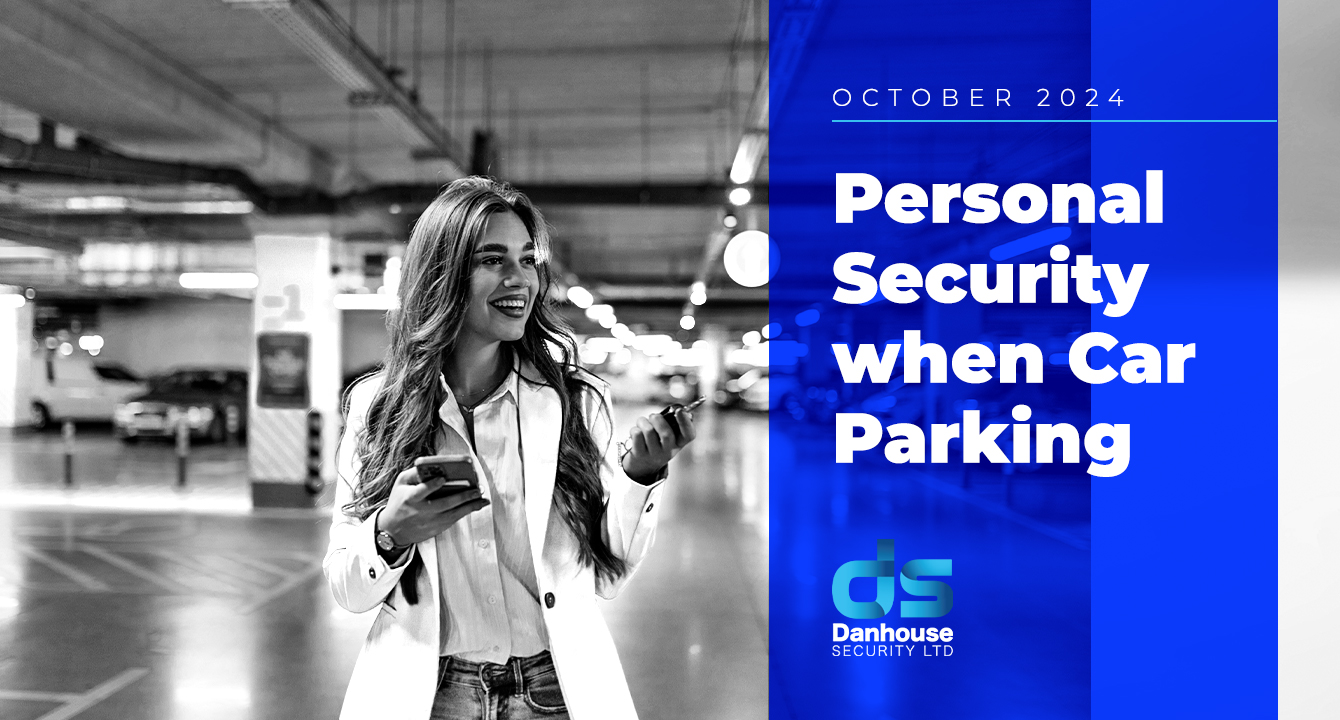Personal Security When Parking a Car
With many types of criminality on the rise in the UK due to the ongoing cost of living crisis, it isn’t always easy to park your car in a spot where you feel comfortable leaving it for an extended period. Women in particular will naturally have some concerns for their personal safety when parking at night in quiet or poorly-lit places. “Parking is something which most of us have to do on a very regular basis, but some locations are definitely safer than others” says our Managing Director, John Fitzpatrick. “We would like to offer some advice about the steps you can take when parking your car to reduce anxiety and your chances of becoming a victim of crime.”
Multi-storey car parks can often feel like threatening places, even in the daytime. If you’re returning to your car after a visit to a shopping-centre, you are at your most vulnerable, and the potential, although small, exists for attacks, muggings and other crimes. These can happen not just in multi-storey car parks of course, but in lots of other parking locations as well. There may be CCTV operating, but this is not always an effective deterrent against criminal behaviour – it’s hard to identify people when they’re wearing hoodies. Whenever you park in a car park you need to be vigilant and aware of what’s happening around you. Concentrating deeply on your mobile phone screen as you walk through a car park is not recommended.
Most would agree that the best parking spots are those which are well-lit and visible. If you can, try to park near doors or lifts. This will reduce the chances that your vehicle will be targeted by thieves. It’s easier said than done, of course, as everyone prefers to park in these spots. If possible, park in car parks which have attained the Park Mark standard. These car parks have passed a Police risk assessment. If you’re parking on a street at night, try and park under a lamp or a streetlight. If you park in the same location every day, it’s best not to park in the exact same spot every day as this can make your vehicle more vulnerable to the risk of theft. Somewhat counterintuitively, parking on busy roads can actually be better than parking on quiet ones – although there’s a higher chance of your vehicle being damaged, statistically speaking cars are more likely to be stolen from quiet, dimly-lit roads. When you park on a road, it’s a good idea to turn your wheels into the kerb. This means that anyone trying to steal your car will have to make more manoeuvres to get away. This advice comes directly from an ex-car thief!
Even if you’re only parking your car for a few minutes, make sure you lock your doors and close your windows. Don’t leave valuables in your car. If you have to leave items of any value in your car, it’s always best to hide these from view by putting them in the boot or covering them from prying eyes. If you forget to lock your car and start walking away from it, some (but not all) manufacturers have apps which are able to send an alert to your phone. Whenever you park, always make a mental note of any distinguishing features or landmarks that will help you find your vehicle quickly and easily when you return to it.
When you return to your vehicle, be mindful of what’s going on around you. Scan the area and have your car keys ready so that you avoid scrambling to find them in your bag. As you approach it, check from a distance that you don’t have any flat tyres or broken windows, and look out for anyone loitering near your vehicle or hiding underneath it. If anything makes you feel uncomfortable, or you notice anything suspicious, return quickly to a public place. If you can, seek out a security guard or car park management. Most buildings, shopping-centres and commercial properties employ security personnel. If it’s late at night or after business hours, don’t be shy about asking for assistance, such as requesting an escort to your vehicle. If your car is in a very large car park, and you suddenly realise you’ve forgotten where you parked it, your iPhone, if you have one, can alert you to where it is.












